Best drumsticks for beginners 2025: Recommended sticks for budding players
Choose your perfect first pair of sticks from our expert recommendations, including models from ProMark, Vater, Vic Firth and more
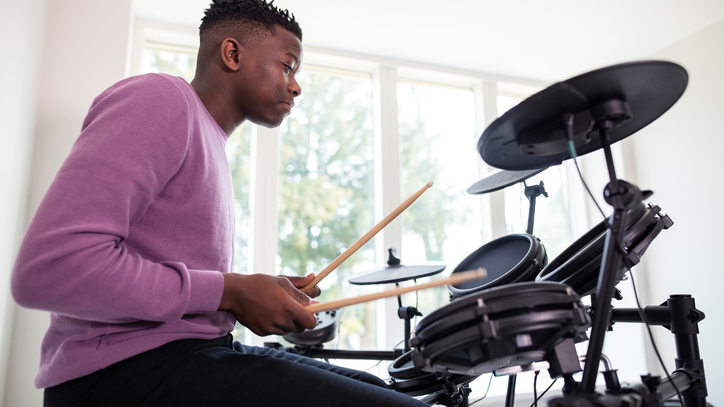
Starting a new instrument is an exciting time, particularly when that instrument is a shiny new drum kit. But with so much already to consider in terms of shells, heads, cymbals, hardware, pedals and more, it can be easy to forget one of the most important parts of a new drummers’ toolkit: your sticks. With so much choice we want to help you overcome option paralysis with this guide to the best drumsticks for beginners.
For drummers, sticks are the primary form of contact between yourself and your instrument. A decent pair of sticks is an essential tool to begin your drumming journey, but how best to navigate a potential minefield of different options, sizes, materials, weights and colours? This guide aims to help budding drummers choose their perfect first pair.
This writer was a beginner once - and has taught many beginners - so knows exactly what to look for in a pair of beginner-friendly sticks. Let's take a look.
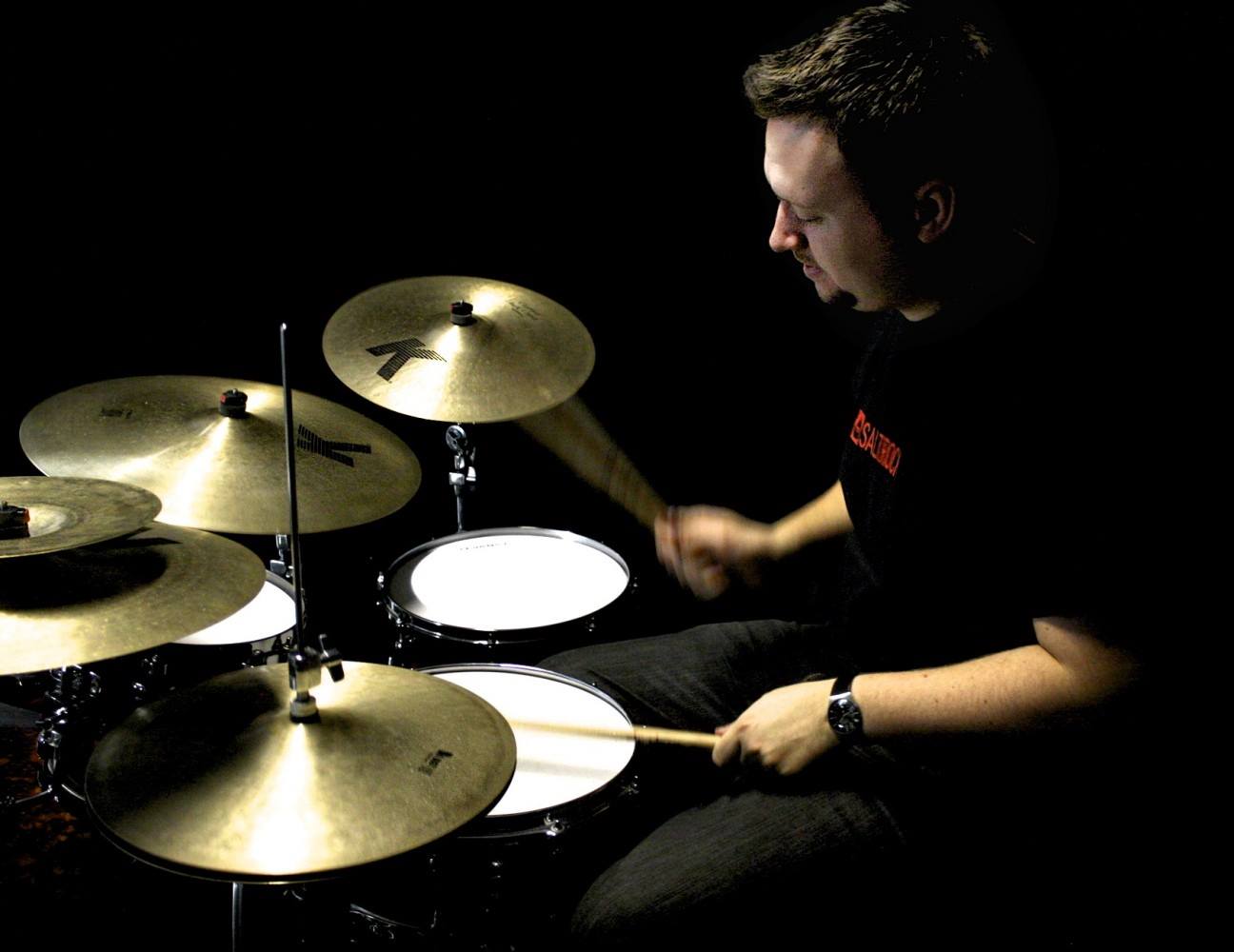
Tom is a professional drummer with a long history of performing live anywhere from local venues to 200,000 capacity festivals. Tom is a private drum tutor, teaching players of all levels and ages, in addition to teaching at the BIMM Institute in Birmingham. He is also a regular contributor to MusicRadar, with a particular passion for all things electronic and hybrid drumming.
Best drumsticks for beginners: Product guide
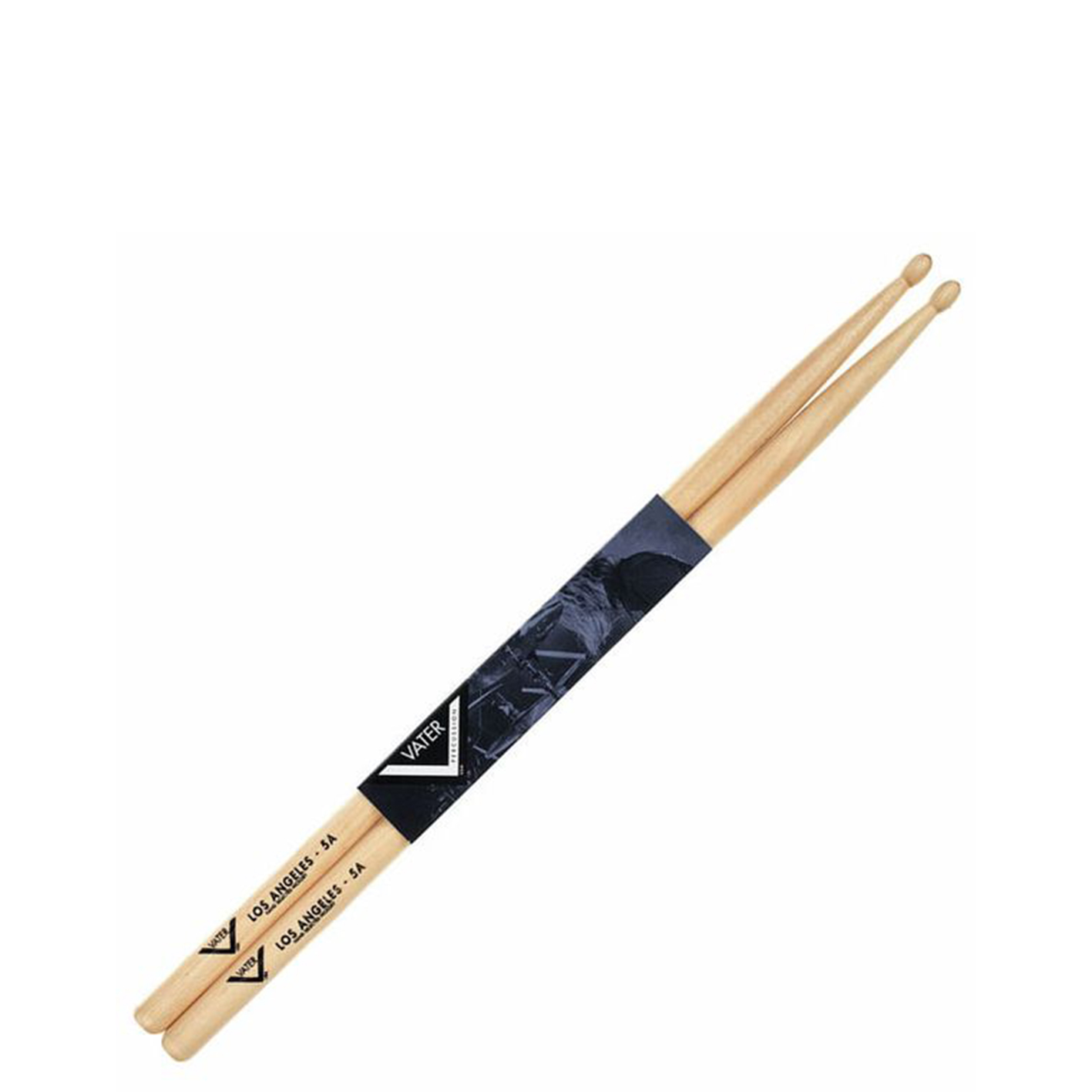
Finish: Natural
Material: Hickory
Length: 16”
Diameter: .570”
Tip style: Oval wooden
+ A versatile stick
+ A trusted brand
- Nothing of note
You simply can’t go wrong with a pair of 5A drumsticks, and this model from Vater is a great choice. The Los Angeles model is a standard 16” length with a 0.570” diameter which is slightly heavier toward the tip for optimum speed and rebound. Constructed from premium hickory for strength and durability, the Vater 5A is also available in Nude (unfinished for additional grip), Extended Play, Sugar Maple, Eternal Black and a host of colour wrap options. Vater is another of the top drumstick manufacturers whose products are renowned for their durability and longevity, even with the hardest of hitters.
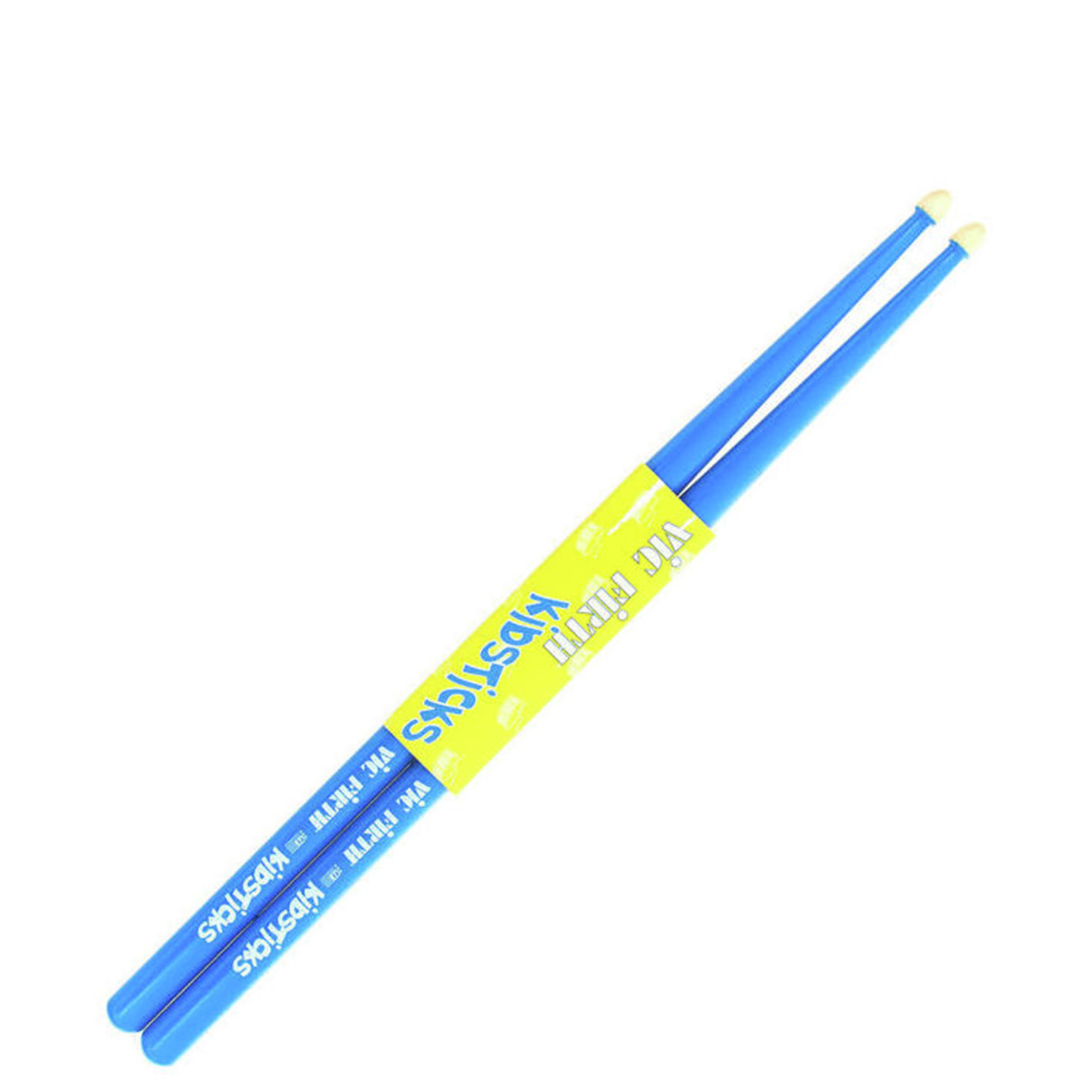
Finish: Blue or Pink
Material: Hickory
Length: 13”
Diameter: .520”
Tip style: Tear drop wooden
+ Trusted brand
+ Ideal for children
- Too small for some
- Limited colour options
Vic Firth is one of if not the best-selling drumstick brands in the world, so who better to put your trust in for your child’s first pair of sticks? These perfectly proportioned drumsticks, designed specifically for young hands, are 13” in length and a hair over half an inch thick. They are built from hickory wood and painted in a striking blue or pink finish (except for the tip which remains a natural wood finish so they don't mark your heads). Vic Firth says they are “engineered to make playing easy for the very young drumset player” and suitable for ages three to eight.
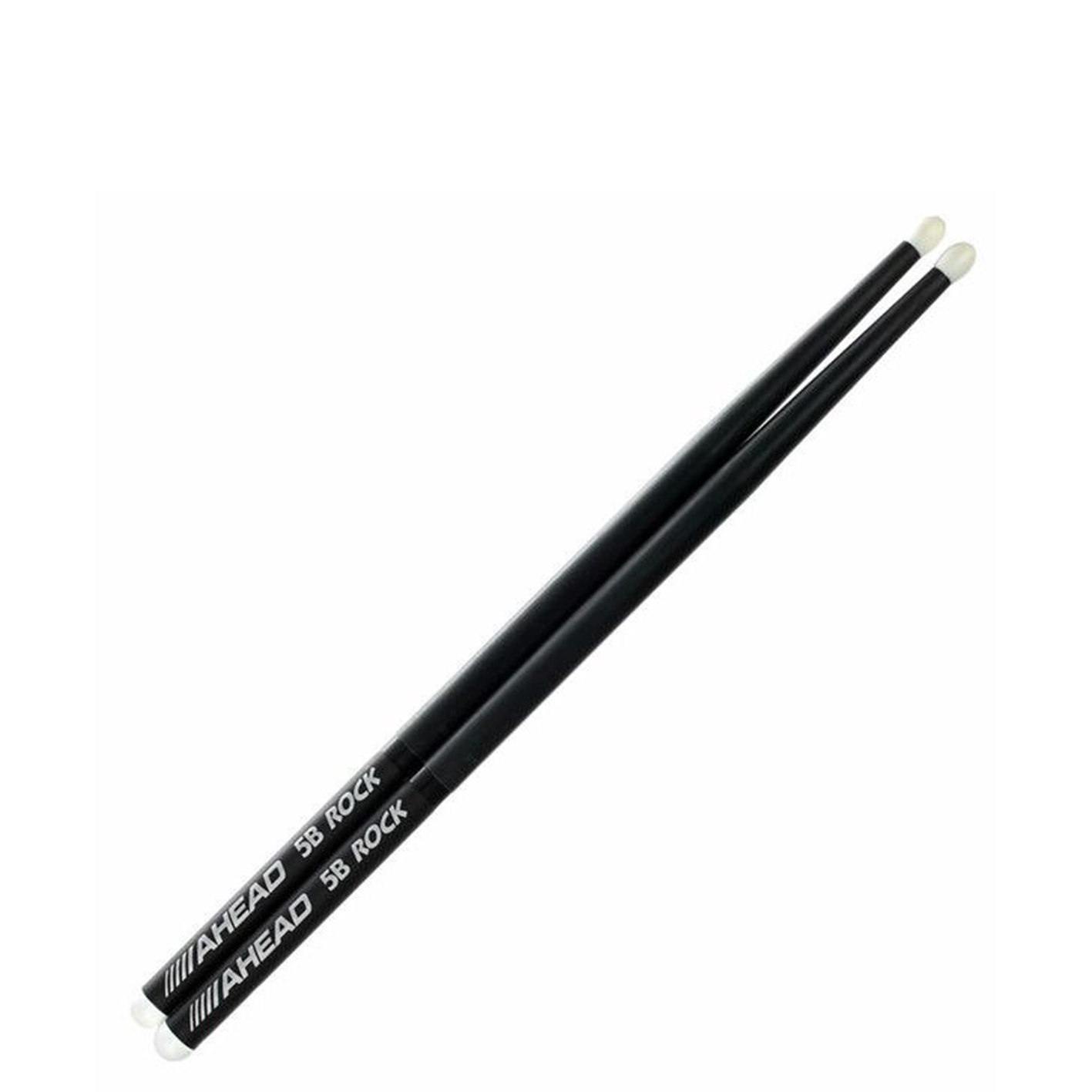
Finish: Black
Material: Aluminium and polyurethane cover
Length: 16”
Diameter: .595”
Tip style: Teardrop nylon
+ Replaceable sleeves
+ Tips can be swapped
- Grip can be slippery
- Pricier than wood
Ahead sticks are constructed from aerospace-grade aluminium tubing with a polyurethane sleeve that covers the top half of the stick, protecting not only the aluminium core but also your precious drums and cymbals. The benefit of these sticks is 50% more shock absorption and a longer life - lasting up to 10 times longer than wooden models. The nylon tips unscrew to allow the plastic sleeve to be removed and replaced, meaning these sticks could effectively last forever. The removable tips can also be replaced with different colours or even felt mallet heads.
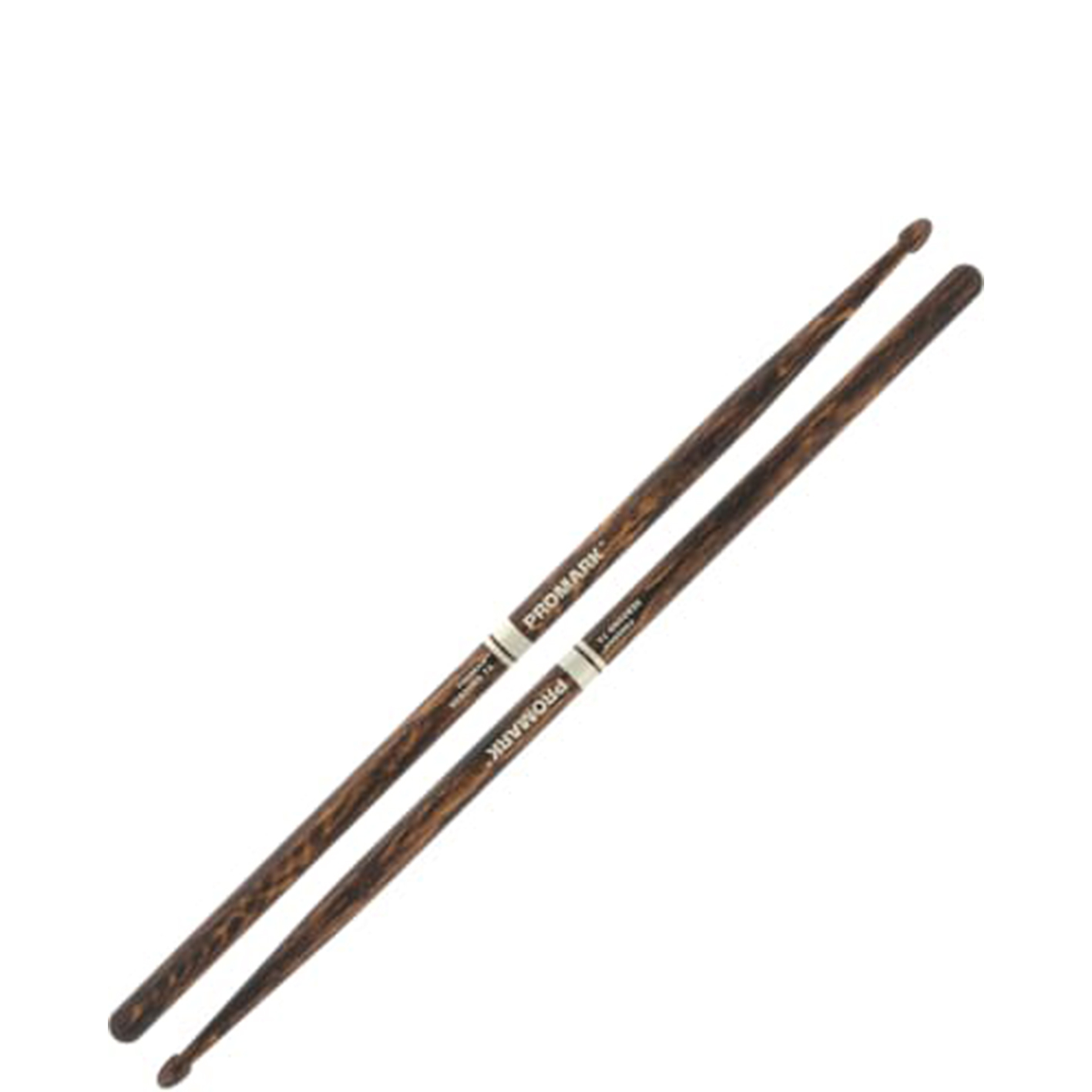
Finish: FireGrain
Material: Hickory
Length: 16”
Diameter: .535”
Tip style: Acorn wooden
+ Unique flamed finish
+ Extra durable
- Nothing of note
FireGrain is one of Pro-Mark's more recent developments. Available across a range of sizes, the finished stick is treated to a heat-tempering process which Promark says “turns ordinary hickory drumsticks into precision tools with unprecedented durability”. The process also creates a unique appearance. This specific Rebound 7A model is 16” long with a .535” (13.5mm) diameter, an acorn wood tip and is rear-weighted to enhance rebound. The same model is also available with ActiveGrip finish which reacts to the heat of your hands, giving extra grip at higher temperatures.
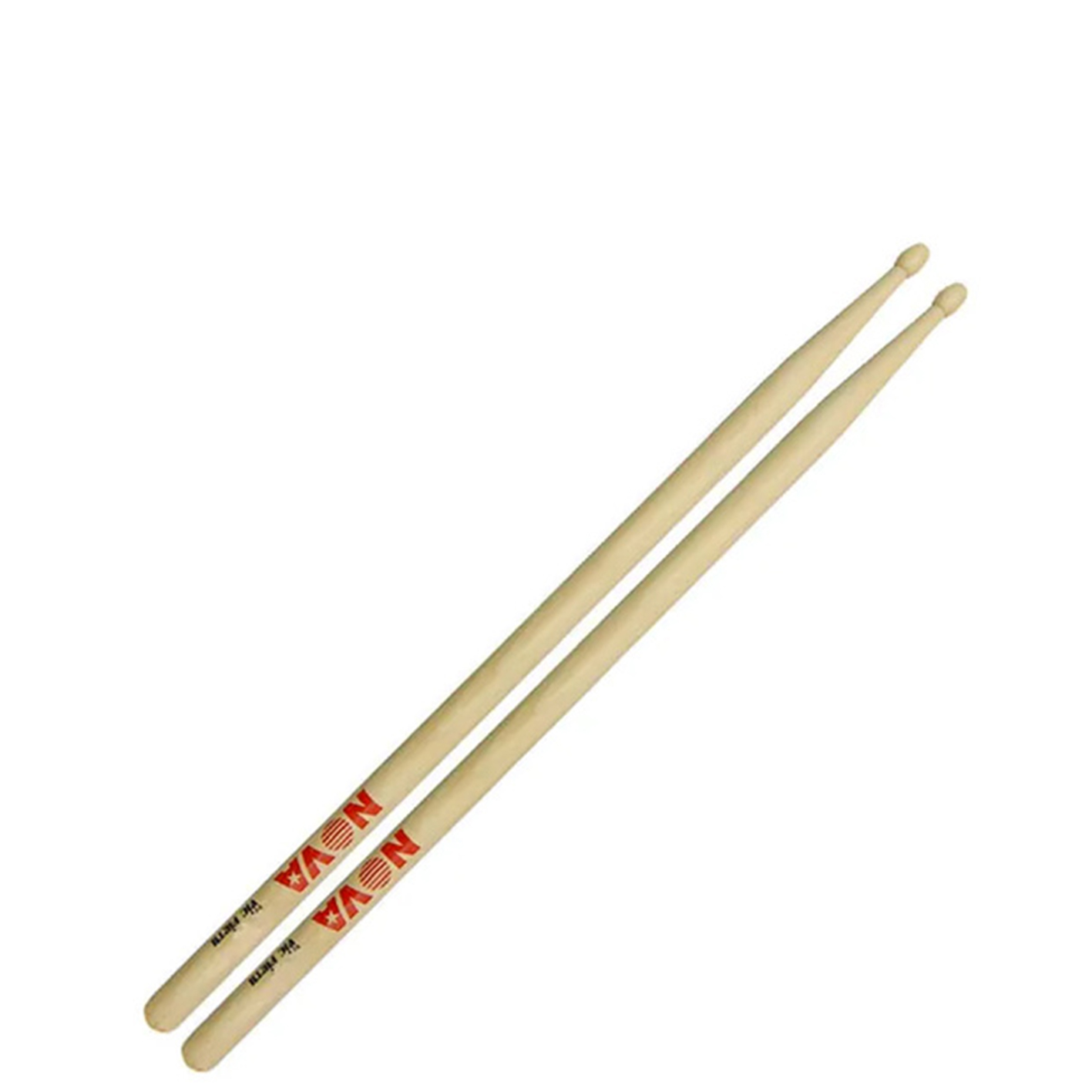
Finish: Black
Material: Hickory
Length: 16.25”
Diameter: .630”
Tip style: Teardrop nylon
+ A great value stick
+ Many sizes/finishes
- Not for heavy hitters
Nova is Vic Firth’s budget stick line which uses secondary grade hickory for a lower price point. They are available in a massive range of sizes and multiple finishes. The usual 5A, 5B and 2B culprits are catered for - all with wood or nylon tip options. There's even a 2B model painted in black with red nylon tips – a rite of passage for any aspiring metal drummer to look the part. Novas represent a great option for new drummers - they are still hard-wearing at about half the price of a top-end stick.
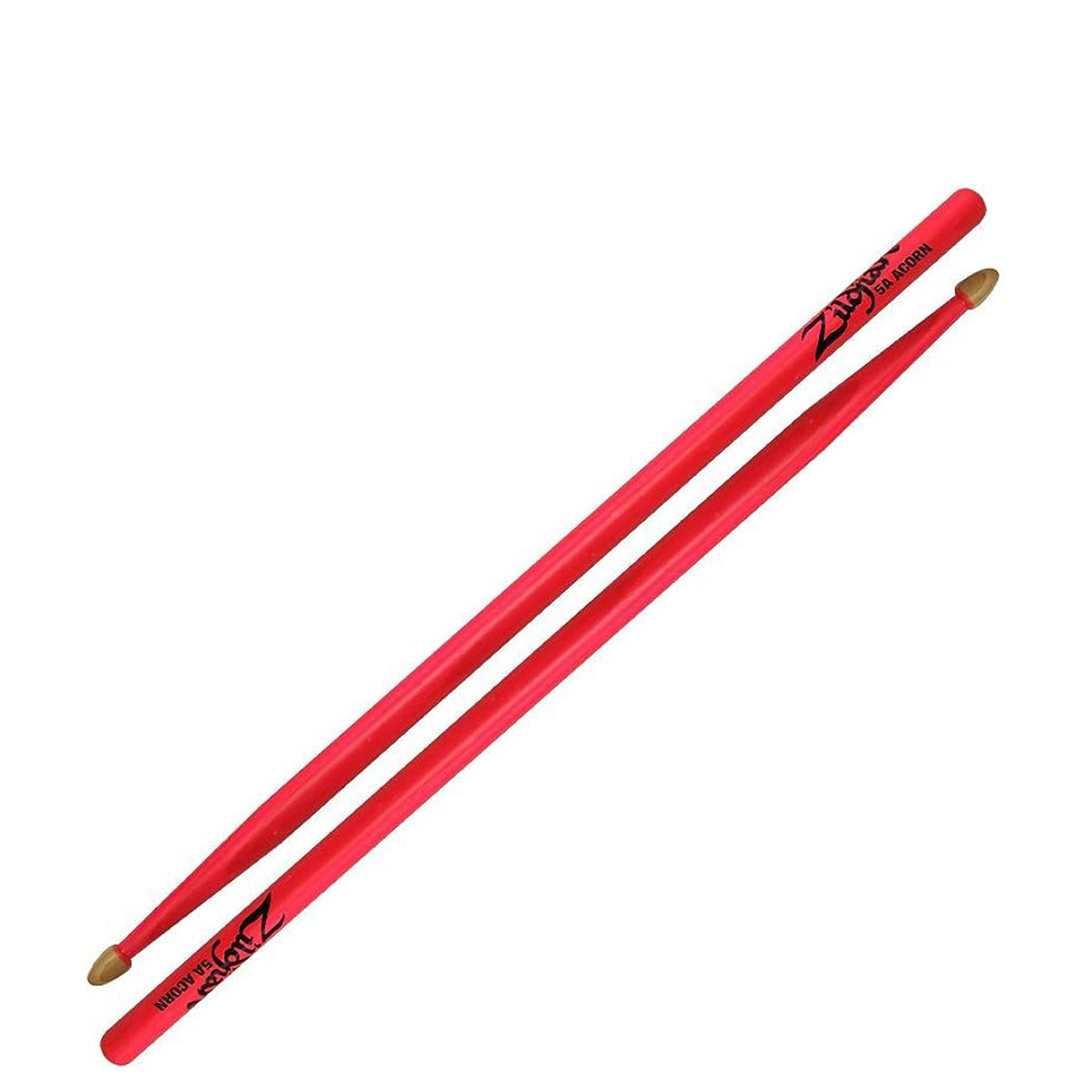
Finish: Neon green, yellow or pink
Material: Hickory
Length: 16.25”
Diameter: .57”
Tip style: Acorn wooden
+ Trusted brand
+ A strong look
- Only 5A size available
- Not enough colours
Zildjian has been crafting high-end cymbals for 400 years but also has an excellent reputation for great quality drumsticks. These vibrant neon painted sticks are available in green, yellow and pink, which are not only eye-catching in natural light but also glow under UV light. They are finished with a black Zildjian logo and a large ‘Z’ further up the shaft which can be seen more clearly, even when playing. The acorn tip is unpainted and contrasts well with a natural hickory finish. Grab a pair in each colour to keep style options open, or even mix and match.
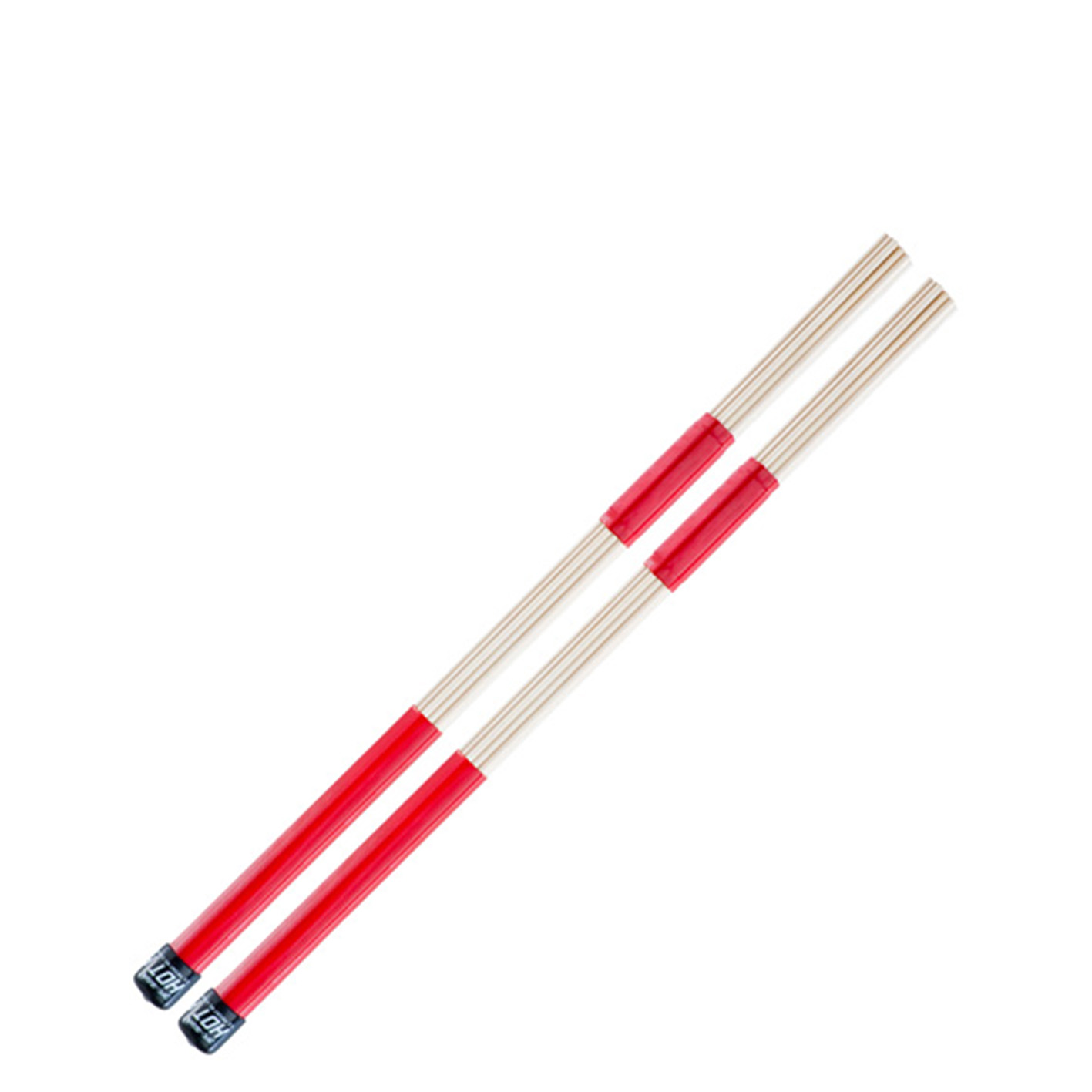
Finish: Natural
Material: Birch
Length: 16”
Diameter: .560”
Tip style: N/A
+ Quieter than sticks
+ Tonal options
- A little pricey
- No substitute for normal sticks
For more experienced drummers it is extremely common to have multiple pairs of sticks, brushes and mallets in the bag ready for any musical scenario. Each of these rods is made from 19 individual birch dowels which are packed tightly together to create a more subtle and alternative sound when compared to a standard pair of sticks. They can also come in extremely handy when less volume is called for. They’re ideal for quiet practice but it’s worth noting that they won’t compare to a regular pair of sticks for learning correct hand techniques.
Best drumsticks for beginners: Buying advice
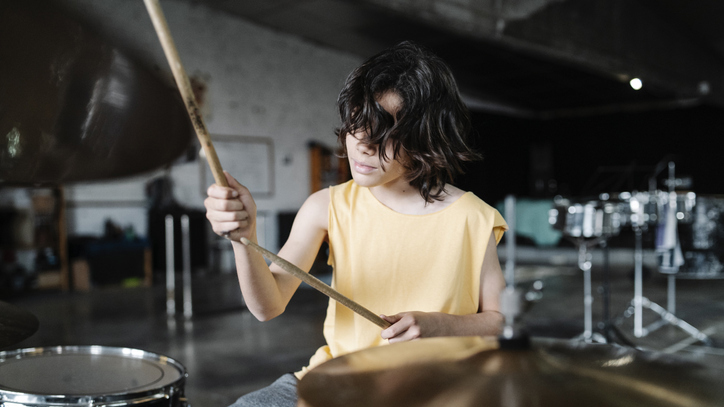
How to choose the best drumsticks for beginners
MusicRadar's got your back
To the uninitiated, a pair of sticks is just that – a couple of pieces of wood used for beating the tar out of a drum kit. Those in the know however will appreciate the considerable and tangible difference that just a few millimetres in the length or thickness of the sticks can make. Not only does this affect the feel and playability of the stick but also the tone that it draws from the drums and cymbals.
How does drumstick sizing work?
Drumstick sizes are categorised using a numbering and lettering system which denotes weight and thickness. The lower the number, the heavier the stick and vice versa. The letter traditionally references the intended use for the stick, i.e. A for orchestra or B for band, but as a general rule, B will have the larger diameter. The ‘5A’ has become the go-to standard due to its medium weight, diameter and 16” length. Other popular sizes include 7A which is a lighter, thinner stick ideal for jazz players or those with smaller hands. 2B on the other hand is a seriously chunky and weighty choice which works well for rock or metal styles (although this largely boils down to personal preference).
Are there any alternatives to wooden drumsticks?
In addition to this plethora of options, we can also consider the materials used in the build of the sticks. Wooden sticks are of course the norm, with hickory, maple and oak being the most common, although other materials such as carbon fibre are sometimes used.
What makes a great beginner drumstick?
Beginners needn't get too bogged down in the minutiae of stick weight, length, taper, tip type etc right at the start of their playing journey. Once you have worked out your style, have developed some technique and have a bearing on how hard you hit, you can dial into the detail.
Beginners should be looking for a stick that's not too heavy, not too light, not too long or short and feels comfortable and balanced in the hand. That's why many new drummers start with a 5A, as it represents the best middle ground for all of the above factors. You can then evolve your stick choice from there once you discover more about your stick needs.
If you're still unsure, it pays to head to your nearest drum store to try a few pairs in the hand and tap a practice pad with them. You should be able to feel what is right for you. Sticks are some of the cheapest things you'll buy as a drummer, so buy a few pairs and experiment at the kit; you'll quickly discover what works for you.
Should I buy signature sticks as a drummer?
It can be tempting to grab the signature stick from your favourite player. Owning a pair of sticks modelled on your hero can be very inspiring, but proceed with caution - these players have honed their playing over years and will have very specific needs from their sticks. And what's good for them might not be so good for you.
How we choose the products for this guide
Here at MusicRadar, we are experts in our field, with many years of playing, creating and product testing between us. We live and breathe everything music gear related, and we draw on this knowledge and experience of using products in live, recording and rehearsal scenarios when selecting the products for our guides.
When choosing what we believe to be the best drumsticks for beginners available right now, we combine our hands-on experience, user reviews and testimonies and engage in lengthy discussions with our editorial colleagues to reach a consensus about the top products in any given category.
First and foremost, we are musicians, and we want other players to find the right product for them. So we take into careful consideration everything from budget to feature set, ease of use and durability to come up with a list of what we can safely say are the best drumsticks for beginners on the market right now.
Find out more about how we test music gear and services at MusicRadar.
Related buyer's guides
- Best drum practice pads: sharpen your chops
- Best beginner drum sets: entry-level acoustic drum kits
- Best beginner electronic drum sets: affordable kits to get you started
- Easy drum songs every beginner should learn
Get the MusicRadar Newsletter
Want all the hottest music and gear news, reviews, deals, features and more, direct to your inbox? Sign up here.
Tom is a professional drummer with a long history of performing live anywhere from local venues to 200,000 capacity festivals. Tom is a private drum tutor, in addition to teaching at the BIMM Institute in Birmingham. He is also a regular feature writer and reviewer for MusicRadar, with a particular passion for all things electronic and hybrid drumming.
“Beyond its beauty, the cocobolo contributes to the guitar’s overall projection and sustain”: Cort’s stunning new Gold Series acoustic is a love letter to an exotic tone wood
Guitar Center’s massive Guitar-A-Thon sale has landed, and it includes $600 off a Gibson Les Paul and a host of exclusive models from Epiphone, Taylor, and more
Has Fyre really gone out?: Billy McFarland’s festival will be limited to just 250 guests and just 12 hours of music